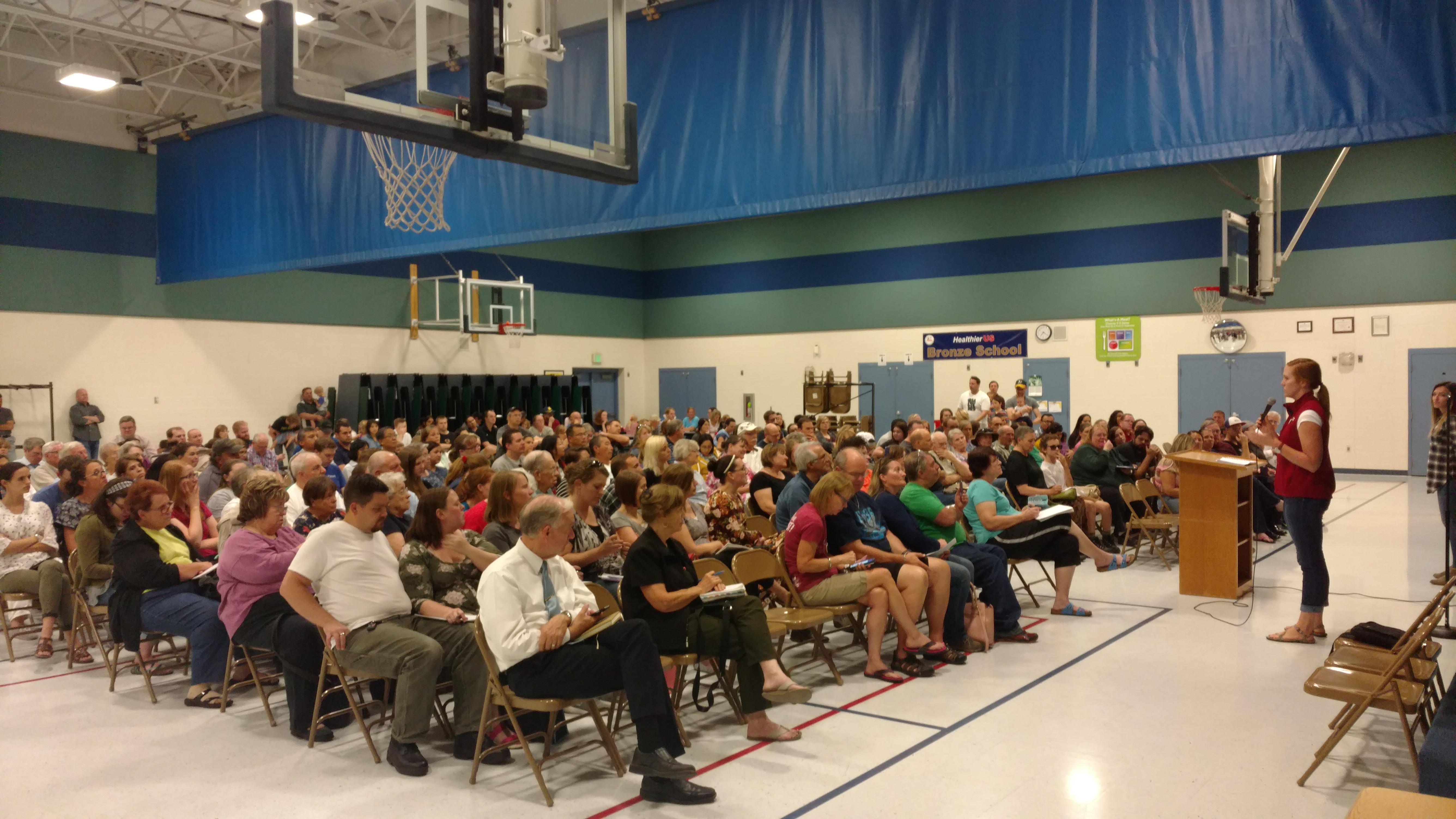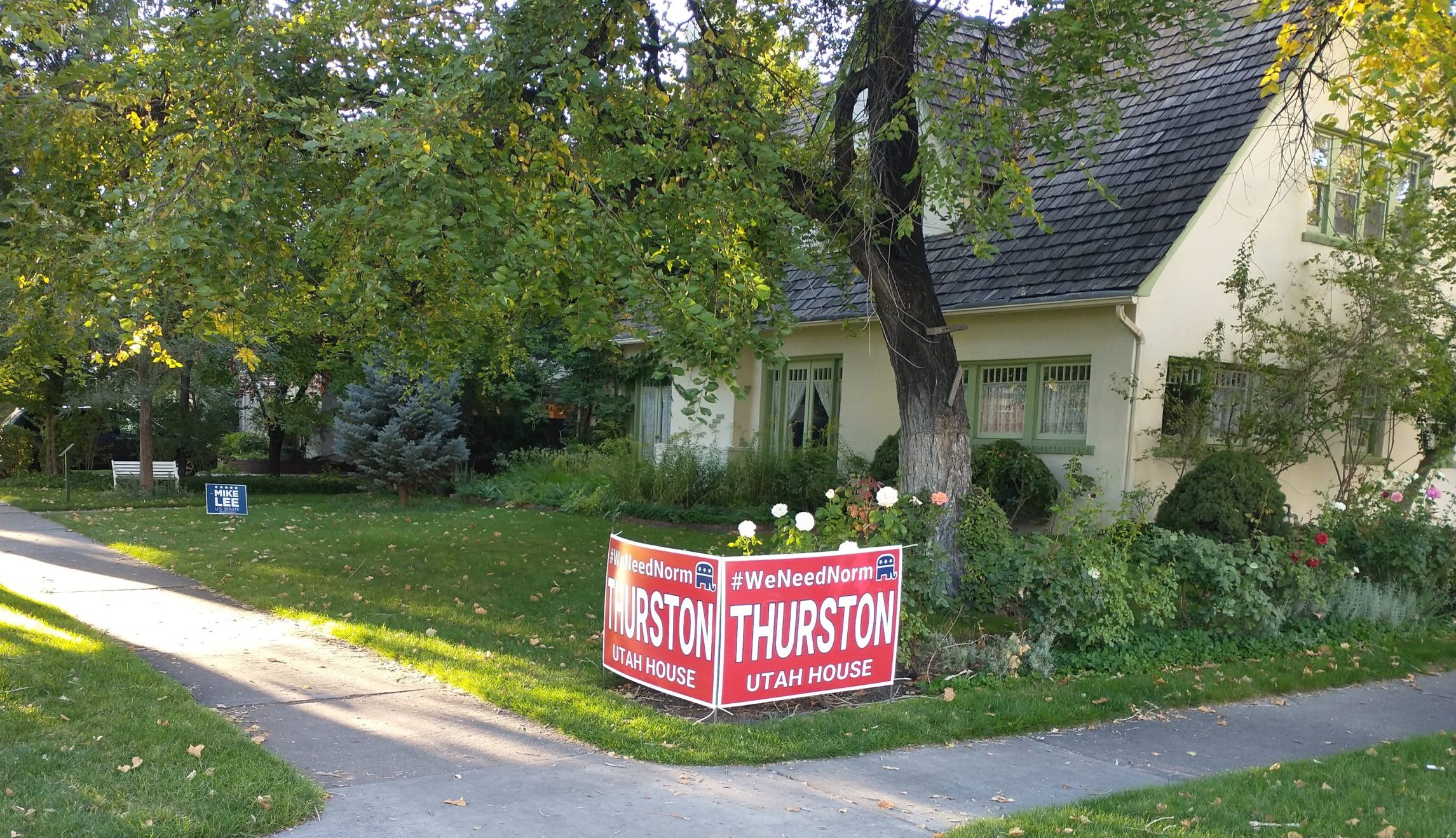Community Meeting
In the past couple of weeks, we have had some scary news about real dangers that could affect any of us at any time. Two wild fires in Utah County threatened homes in Elk Ridge, Woodland Hills, Covered Bridge, and Springville (Hobble Creek), resulting in some families being evacuated on short notice.
In cooperation with Chief Miguel of the Provo Fire Department and the local chapter of the American Red Cross, I was happy to pull together a community information session to help friends and neighbors learn about the threat of the wildfires and how to prepare for any possible need to evacuate. About 300 people came to get more information.

A few important things that we learned:
- Utah is one of the least disaster-prone states in the country (#2 behind only Idaho).
- The current wildfires present an extremely small threat to residents of Provo and northeast Springville, so there is no need to panic or worry.
- There are plenty of other risks that could result in evacuation on a large or small scale – from a whole city or neighborhood down to just one family.
- In the event of an pre-evacuation or evacuation order, families need to be ready on relatively short notice to take everything they need or everything that is important to them. It will probably be too late to adequately prepare at that point.
- Mental preparation can be as important in preparing as physical preparedness. Understanding the situation and being able to think through it is a valuable skill.
- Evacuation orders are issued in most cases by the County Sheriff and every attempt will be made to notify residents, including sending deputies door to door.
- It is critical to obey an evacuation order.
- There are many resources available through the American Red Cross and your local fire department to help you prepare.
Video of the presentations is available online. You can check the following sources:
Here are some guidelines from Provo Fire Department:
Home Evacuation Checklist – How to prepare for an evacuation:
Inside the House
- Shut all windows and doors, leaving them unlocked.
- Remove flammable window shades, curtains and close metal shutters.
- Remove lightweight curtains.
- Move flammable furniture to the center of the room, away from windows and doors.
- Shut off gas at the meter, turn off pilot lights.
- Leave your lights on so firefighters can see your house under smoky conditions.
- Shut off the air conditioning.
Outside
- Gather up flammable items from the exterior of the house and bring them inside (patio furniture, children’s toys, door mats, trash cans, etc.) or place them in your pool.
- Turn off propane tanks.
- Move propane BBQ appliances away from structures.
- Connect garden hoses to outside water valves or spigots for use by firefighters. Fill water buckets and place them around the house.
- Don’t leave sprinklers on or water running, they can affect critical water pressure.
- Leave exterior lights on so your home is visible to firefighters in the smoke or darkness of night.
- Put your Emergency Supply Kit in your vehicle.
- Back your car into the driveway with vehicle loaded and all doors and windows closed. Carry your car keys with you.
- Have a ladder available and place it at the corner of the house for firefighters to quickly access you roof.
- Seal attic and ground vents with pre-cut plywood of commercial seals.
- Patrol your property and monitor the fire situation. Don’t wait for an evacuation order if you feel threatened.
- Check on neighbors and make sure they are preparing to leave.
Animals
- Locate your pets and keep them nearby.
- Prepare farm animals for transport and think about moving them to a safe location nearby.
EMERGENCY SUPPLY KIT CHECKLIST
- Three-day supply of non-perishable food and three gallons of water per person.
- Map marked with at least two evacuation routes.
- Prescriptions or special medications.
- Change of clothing.
- Extra eyeglasses or contact lenses.
- An extra set of car keys, credit cards, cash or traveler’s checks.
- First aid kit.
- Flashlight.
- Battery-powered radio and extra batteries.
- Sanitation/personal hygiene supplies.
- Copies of important documents (birth certificates, passports, etc.)
- Don’t forget pet food and water!
Items to take if time allows
- Easily carried valuables
- Family photos and other irreplaceable items
- Personal computer information on hard drives and disks
- Chargers for cell phones, laptops, etc.
Always keep a sturdy pair of shows and a flashlight near your bed and handy in case of a sudden evacuation at night.
For more information on emergency supplies, visit www.ready.gov



